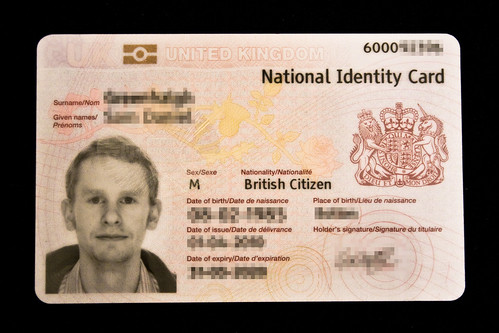 |
| Image License: Creative Commons image source |
Ordering Merchandise On The Internet
Most e-Commerce sites feature secure connections for placing orders and also claim to securely transmit your financial information during a transaction. It is important to know that most of these sites store your personal and financial information on their servers to make future orders easier and more convenient to place.
It is important to only order merchandise from reputable online retailers and steer clear of purchasing merchandise from websites that you or your peers know little about. Typical e-Commerce websites offer the best available security for your Internet transactions, but some smaller less-known sites may store your data within databases that are not secured against cybercriminals. Be sure to avoid inputting information on any consumer website that isn’t well known and trusted by yourself or others.
Learn To Identify Phishing E-mails and Websites
Although some websites may only have sub-par security, others are designed with the sole purpose of gaining your personal and financial information for identity theft. These sites are commonly known as “Phishing Sites” and are often received via E-mails written to entice or persuade an individual into entering their private information.
Common examples of phishing E-mails and websites are those that notify you of winning a product or service when you have no prior knowledge of entering any contest or sweepstakes. Others will simply be a notification of your qualification to receive a free product such as a laptop, television or other appliance with a high expense.
If it is too good to be true, it usually is. While your first thoughts may be feelings of excitement or joy over getting a free gift, don’t let these feelings persuade you to enter private information that you otherwise would not. Phishing is designed to play on the feelings and impulses of others to gain this information. Be sure to identify when things appear to make little sense, it can save you from possible identity theft and your credit card information being sold on the black market.
You Don’t Have To Share Your Information For It To Be Stolen
You may think that ordering from reputable websites and identifying fishing is enough, but sadly it is not. Viruses, malware, spyware, and trojans of many kinds also attempt to steal financial information for identity theft. This means the security of your home or office PC is also of the utmost importance in preventing theft of your identity.
You should always use security best practices and keep your operating system up to date with the latest security updates, anti-virus definitions and always operate a functional firewall. Although fishing and databases with poor security are heavily targeted methods of obtaining private information, a compromised system can leak this same information without the owner ever sharing it anywhere.
If you combine these 3 things on a consistent basis, you can successfully prevent the theft of your valuable personal information. With the increasing risk of cyber theft, practicing these methods are a necessity to ensure your online identity is safe and secure against the many threats faced on the Internet today.
Sally Foster is a criminal law paralegal and guest author at Criminal Justice Major, where she contributed to the comprehensive criminal justice major guide.
Please like and share this article with your friend’s if you like the article won’t cost you: thanks
This article is contributed by Sally Foster and posted by Rizwan Ahmad Author and founder of www.cyberockk.com, He is a tech blogger from India and he loves to share his thoughts by writing articles on this site to the different topics related to technology world,








